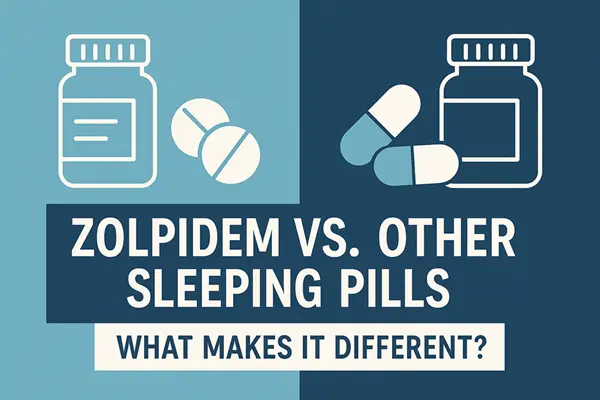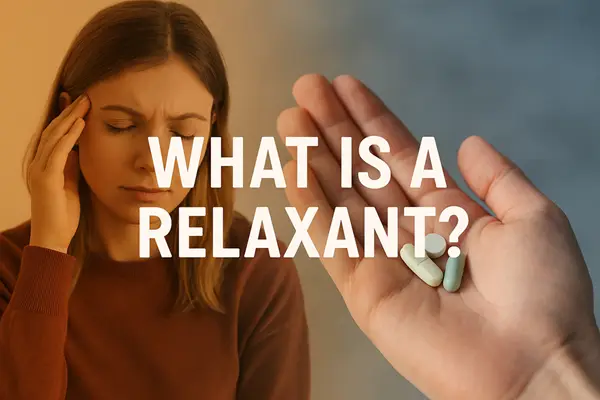If you’ve ever struggled with persistent sleepless nights, you’ll know how draining insomnia can be physically, mentally, and emotionally. For many people, sleeping tablets offer a way to break the cycle and finally get the rest they need. But not all sleeping pills work the same way, and choosing the right one can feel overwhelming. One name that comes up time and time again is Zolpidem, but what sets it apart from the rest?
In this post, we’ll explore how zolpidem differs from other common sleep aids so you can make an informed decision if you’re considering this option.
What is Zolpidem?
Zolpidem is a prescription-only medication used for the short-term treatment of insomnia in adults. It belongs to a class of medicines known as non-benzodiazepine hypnotics. You might recognise it by the brand names Ambien, Stilnoct, or Zolpimist.
Unlike some older sleep medications, zolpidem is designed to help you fall asleep quickly, often within 15 to 30 minutes, without necessarily causing grogginess the next day (when used correctly). But how does it compare to other options?
Zolpidem vs. Benzodiazepines
Traditional sleeping tablets like diazepam (Valium) or temazepam fall under the benzodiazepine group. While effective, they are often associated with a higher risk of dependence, daytime drowsiness, and slower reaction times the next day.
Zolpidem, by contrast, has a shorter half-life, which means it doesn’t stay in your body as long. This can reduce next-day grogginess and make it a more appealing option for people who want to feel refreshed in the morning.
Zolpidem vs. Over-the-counter sleep aids
Many people try over-the-counter (OTC) remedies like antihistamines (e.g., diphenhydramine or promethazine) before turning to prescription medication. While these can help some individuals nod off, they’re not specifically designed to treat insomnia, and they often come with longer-lasting sedative effects.
Zolpidem, on the other hand, is specifically tailored for short-term sleep induction. It works directly on GABA receptors in the brain to calm activity and promote sleep. In simple terms, it’s made for the job.
Zolpidem vs. Melatonin-based treatments
Another popular group of sleep aids involves melatonin or melatonin receptor agonists. These are often used for jet lag or circadian rhythm disorders, as they mimic the natural sleep hormone produced by your body.
While these can be effective for people with disrupted sleep schedules, they don’t work as quickly or strongly as zolpidem for acute insomnia. If you’re lying awake night after night, zolpidem may offer faster relief.
Why Zolpidem might be right for you
Here are a few reasons why people choose zolpidem over other options:
- Fast onset: Helps you fall asleep quickly
- Short half-life: Less likely to cause “hangover” effects
- Designed specifically for insomnia
- Prescribed under professional guidance
Of course, it’s not suitable for everyone. It should only be used short-term and in line with your doctor’s advice. If you’re pregnant, have breathing problems, or have a history of substance misuse, there may be better alternatives.
Final thoughts
When it comes to managing insomnia, there’s no one-size-fits-all solution. What works brilliantly for one person might not suit another. Zolpidem offers a targeted, effective option for short-term relief from sleeplessness, especially when other treatments haven’t worked.
If you’re considering Zolpidem, speak to your GP or a qualified pharmacist first. And if you’ve already been prescribed it and are looking for a safe, discreet way to access your medication, there are trusted online services that can help.


